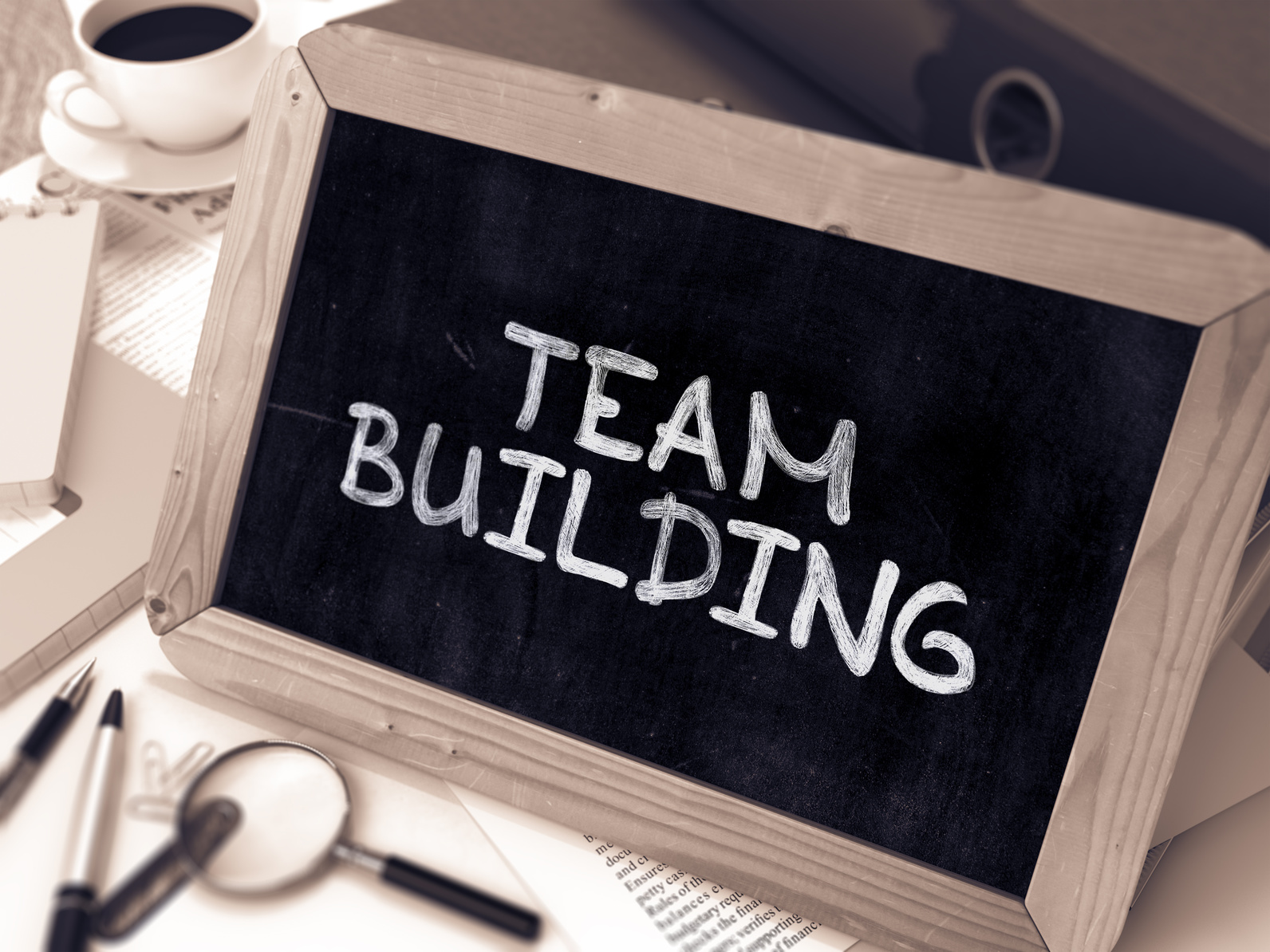Relationships are the foundation of success, both personal and professional. But building and maintaining strong relationships takes effort, and it’s not always easy.
That’s where relationship building activities come in.
These activities are designed to strengthen bonds, improve communication, and foster collaboration among individuals and teams, leading to greater success and fulfillment.
From team building games to trust building exercises, communication activities to networking events, there are a wide range of relationship building activities to choose from.
Each activity serves a unique purpose and can be tailored to meet the needs of individuals and teams.
By incorporating these activities into your personal and professional life, you can enhance your relationships, improve your teamwork, and achieve greater success.

Unleash the Power of Relationship Building Activities Today
Key Takeaways:
- Relationship building activities are crucial for fostering strong relationships and achieving success
- Team building games, trust building exercises, and communication activities are just a few examples of relationship building activities available
- Networking events and group bonding activities can also enhance relationships, both personal and professional
- By engaging in these activities, individuals and teams can improve communication, foster collaboration, and achieve greater success together
- Make relationship building a priority in your personal and professional life to reap the benefits of strong and fulfilling relationships
The Benefits of Relationship Building Activities
Relationship building activities are a powerful way to strengthen connections and enhance teamwork in any setting.
By engaging in these activities, we can build trust, improve communication, foster problem-solving skills, and create a sense of unity and synergy within teams.
The benefits of relationship building activities are vast, and the impact can be transformative for individuals and groups alike.
The Importance of Relationship Building Activities
Relationship building activities are essential for creating a supportive and collaborative environment.
They facilitate communication and trust, enhance problem-solving skills, and promote a positive and productive team culture.
“When people are emotionally invested, they want to contribute. When people are not emotionally invested, they just work.” – Simon Sinek
Relationship building activities encourage emotional investment, fostering deeper connections and a stronger commitment to team success.
By investing time and energy in building relationships, we set the foundation for greater achievements and a more fulfilling personal and professional life.
The Tangible Benefits of Relationship Building Activities
The benefits of relationship building activities extend beyond the emotional investment they create.
By engaging in these activities, we can experience significant improvements in team performance and productivity, as well as personal growth and development.
| Benefits of Relationship Building Activities | Examples |
|---|---|
| Enhanced Communication | Communication activities, active listening, role-playing |
| Improved Collaboration | Collaboration activities, team-building games, group projects |
| Increased Trust | Trust-building exercises, sharing personal stories, trust falls |
| Stronger Relationships | Icebreaker games, group bonding activities, networking events |
| Enhanced Problem-Solving Skills | Problem-solving games, brainstorming sessions, strategic games |
Relationship building activities offer a range of tangible benefits that can elevate team performance and individual growth.
By incorporating these activities into our personal and professional lives, we can achieve greater success and a more fulfilling life.
Investing in relationships is key to unlocking the power of individual and team success.
By engaging in relationship building activities, we can build trust, enhance communication, foster problem-solving skills, and create a positive and productive team culture.
The benefits of these activities are vast and transformative, leading to greater achievements and a more fulfilling life.
Team Building Games for Relationship Building
Team building games are essential tools for creating a positive and productive team environment.
They help build trust, communication, and collaboration among team members, strengthening relationships and enhancing overall performance.
Here are a few team building games that can help develop relationships:
| Game | Description |
|---|---|
| Scavenger Hunt | A fun and interactive game that requires teamwork and problem-solving. Teams must work together to find clues and solve challenges to complete the hunt successfully. |
| Two Truths and One Lie | A game that encourages team members to get to know each other by sharing three statements about themselves, two of which are true, and one is false. The team must guess which statement is a lie. |
| Escape Room | A challenging game that requires team members to work together to solve a series of puzzles and escape before time runs out. It encourages collaboration and problem-solving skills. |
These team building games are just a few examples of how you can use games to build relationships and encourage teamwork. Try incorporating them into your team-building sessions and enjoy the results!

Remember, strong relationships are the foundation of any successful team. Team building games can help develop those relationships, leading to better communication, collaboration, and productivity.
Trust Building Exercises for Stronger Relationships
Trust is essential for building and maintaining strong relationships in both personal and professional settings.
Without trust, relationships can become strained, and teamwork can suffer. Trust building exercises provide opportunities to develop trust, reliability, and open communication with one another.
Here are some effective trust-building exercises:
Blindfolded Walks
This exercise involves guiding a blindfolded partner through a course, relying solely on verbal communication.
The exercise fosters trust and communication skills as partners must rely on each other for guidance.
Trust Falls
Trust falls involve falling backward and trusting a partner to catch you.
This exercise requires vulnerability and trust, facilitating deeper connections and relationships.
Sharing Personal Stories
Sharing personal stories involves opening up and sharing personal experiences with one another.
By sharing personal stories, individuals can develop empathy, understanding, and trust, ultimately leading to stronger relationships.
By engaging in trust-building exercises, relationships can be nurtured, leading to stronger connections, improved teamwork, and greater success together.

Enhancing Communication through Activities
Effective communication is vital for strong relationships, and communication activities provide opportunities to practice and improve these skills.
By engaging in these activities, individuals can overcome barriers that may hinder communication and develop a deeper understanding of one another.
Whether in personal or professional settings, communication activities can help build rapport and enhance relationships.
Role-Playing
Role-playing is an excellent way to practice effective communication skills and learn how to approach challenging conversations.
By acting out different scenarios, individuals can improve their abilities to express themselves clearly and handle conflict constructively.
This activity can be especially helpful in professional settings, such as business negotiations or employee performance reviews, where effective communication is critical.
Active Listening Exercises
Active listening exercises help individuals practice listening skills, which are equally important as speaking skills in effective communication.
In this activity, participants listen to a speaker and then provide feedback and ask questions to show they have understood the message.
This exercise fosters a deeper level of understanding and opens up channels for better communication.
Group Discussions
Group discussions are another effective way to enhance communication skills.
By engaging in open and honest conversations, individuals can learn more about each other’s perspectives and ideas.
Group discussions encourage participants to listen actively, respect diverse opinions, and build consensus.
These discussions can occur in both personal and professional settings and can lead to improved relationships and problem-solving.

“The most important thing in communication is hearing what isn’t said.”
– Peter Drucker
The Importance of Communication in Relationships
Effective communication is essential for strengthening relationships. When individuals can express themselves clearly and listen actively, they can develop deeper connections and understanding.
Communication activities provide opportunities to practice these skills and build stronger relationships.
By incorporating communication activities into your personal and professional life, you can enhance your ability to connect with others and achieve greater success.
Breaking the Ice Games
Icebreaker games are an essential part of relationship building activities. They create a relaxed and fun atmosphere, breaking down communication barriers, and encouraging interaction among individuals.
These games are perfect for team building events, conferences, or any gathering where people need to get to know each other.
One of my favorite icebreaker games is “Two Truths and a Lie.” It’s an easy game to play, and it always gets people laughing and talking. Here’s how it works:
- Each person takes turns introducing themselves and sharing three statements about themselves—two truths and one lie.
- The rest of the group has to guess which statement is the lie.
- After everyone has shared, the group discusses their guesses and learns more about each other.
Another fun game is “The Marshmallow Challenge.” This game requires teams to work together to build the tallest structure possible using only spaghetti, tape, and a marshmallow. It’s a great way to encourage teamwork, problem-solving, and creativity.
Ultimately, icebreaker games are an effective way to break the ice, create a friendly atmosphere, and start building relationships. They should be a staple in any relationship building activities.

Collaboration Activities for Team Success
Collaboration is the backbone of success in any team or group setting. By working together towards common goals, teams can achieve greater outcomes than individuals working alone.
Collaboration activities promote teamwork, encourage creative problem-solving, and strengthen relationships by fostering a cooperative environment.
One effective collaboration activity is group projects. Assigning a task to a group of individuals encourages them to work together, utilize each other’s strengths, and develop a sense of accountability to one another.
The task can be anything from a simple brainstorming activity to a complex project that requires extensive planning.
Another way to foster collaboration is through brainstorming sessions. Brainstorming sessions encourage individuals to share their ideas, collaborate on solutions, and develop a sense of unity and shared responsibility.
By providing a supportive environment for individuals to share their thoughts and ideas, teams can achieve greater success.
Team challenges are another great way to encourage collaboration. Challenges can take on many forms, from building a structure with limited resources to solving a complex problem under a tight deadline.
Table:
| Collaboration Activities | Benefits |
|---|---|
| Group projects | Encourages teamwork and accountability, utilizes individual strengths |
| Brainstorming sessions | Encourages creative problem-solving, develops a sense of shared responsibility |
| Team challenges | Develops problem-solving skills, enhances communication and collaboration |
Collaboration activities provide numerous benefits for individuals and teams, including enhancing problem-solving skills, improving communication and fostering trust and accountability.
By utilizing these activities, teams can achieve greater success, strengthen relationships and create a culture of cooperation and collaboration.
Problem-Solving Games for Enhanced Relationships

attributes-of-a-great-team-player
In any group setting, problem-solving games can be incredibly valuable in building and enhancing relationships.
These types of activities challenge individuals to think critically and work collaboratively towards a common goal.
By engaging in problem-solving games, individuals can develop trust, communication, and problem-solving skills, all of which strengthen relationships.
Problem-solving games come in many different varieties, and they can be tailored to fit a specific group or setting.
For example, a team building retreat may include a strategic game that requires the entire team to work together to solve a complex problem.
Alternatively, a casual game night with friends may include a cooperative puzzle-solving activity.
The benefits of problem-solving games go beyond just enhanced relationships, as these activities also help individuals develop important life skills.
By practicing critical thinking and collaboration, individuals can improve their performance in both personal and professional settings.
Example: “Escape Room”
One popular problem-solving game that has gained popularity in recent years is the “escape room” experience.
This game involves a group of individuals being “locked” in a room and given a series of puzzles and clues that they must solve in order to escape within a set time limit.
The “escape room” game requires individuals to work together to solve problems and brainstorm creative solutions.
This type of activity encourages cooperation and communication, helping individuals develop a better understanding of their teammates.
Overall, problem-solving games are an excellent way to strengthen relationships and build important life skills.
By incorporating these activities into group settings, individuals can foster a collaborative and supportive environment, leading to enhanced success and greater achievements.
Networking Events for Building Professional Relationships

Networking Events
As a Team Building Facilitator, I understand the importance of building strong relationships in the professional world.
Networking events are a fantastic way to connect with like-minded individuals, expand your professional network, and build valuable relationships that can benefit you in numerous ways.
Attending networking events allows you to meet new people, exchange ideas, and learn from others in your industry.
These events provide a platform to engage in meaningful conversations, share your expertise, and showcase your skills to potential collaborators or employers.
By actively participating in networking events, you can strengthen professional relationships and open doors to new opportunities.
The Benefits of Networking Events
Networking events offer numerous benefits for individuals looking to build their professional relationships. By attending these events, you can:
- Connect with like-minded professionals in your industry
- Expand your professional network
- Build valuable relationships with potential collaborators or employers
- Learn from others in your industry
- Exchange ideas and share your expertise
By taking advantage of these benefits, you can gain valuable insights, grow your network, and potentially open new doors to career success.
How to Make the Most of Networking Events
To make the most of networking events, it’s important to come prepared. Here are some tips to help you make a lasting impression:
- Research the event and attendees beforehand
- Prepare a short elevator pitch that highlights your skills and experience
- Bring plenty of business cards to exchange with others
- Dress appropriately and professionally
- Be approachable and friendly, and try to engage in conversations with others
By following these tips, you can ensure that you make a meaningful impression on those you meet and potentially create valuable professional relationships.
“Networking events offer opportunities to connect with like-minded professionals, build valuable relationships, and expand your professional network.”
Networking events are a powerful tool when it comes to building your professional relationships.
By connecting with others, exchanging ideas, and learning from those in your industry, you can gain valuable insights and potentially open doors to new opportunities.
Remember to come prepared, be approachable, and make a lasting impression on those you meet.
With these tips in mind, you can make the most of networking events and build the professional relationships necessary for success.
Group Bonding Activities for Stronger Connections

Group Bonding
As someone who understands the power of relationship building activities, I know that group bonding activities are some of the most effective ways to enhance connections and cultivate a positive team culture.
These activities not only foster collaboration and teamwork but also create a sense of unity, trust, and camaraderie among team members.
Engaging in group bonding activities is a great way to break down barriers and develop stronger relationships.
These activities can range from team-building exercises to recreational outings, depending on the goals, interests, and preferences of the group.
Examples of Group Bonding Activities
Some examples of group bonding activities include:
- Volunteering for a charitable cause
- Taking a team-building class, such as cooking or painting
- Participating in outdoor adventures, like hiking or white-water rafting
- Organizing a community service project, such as a beach clean-up or food drive
- Hosting a game night or movie marathon
By investing time and effort into group bonding activities, teams can strengthen their connections, improve morale, and enhance their overall performance.
When individuals feel a sense of belonging and unity within a group, they are more likely to collaborate effectively, communicate openly, and achieve shared goals.
The Benefits of Group Bonding Activities
The benefits of group bonding activities are numerous:
- Develop trust and mutual respect among team members
- Create a sense of camaraderie and belonging within the group
- Encourage open communication and collaboration
- Foster a positive and supportive team culture
- Improve morale and motivation
When individuals feel connected and supported, they are more likely to be happy, productive, and successful. Engaging in group bonding activities is a simple yet effective way to achieve these outcomes.
Overall, group bonding activities are an essential part of any relationship building activities toolkit.
By incorporating these activities into your personal and professional life, you can develop stronger connections, enhance teamwork, and achieve greater success together.
Frequently Asked Questions – Relationship Building Activities

frequently asked questions
What are relationship building activities?
Relationship building activities are various exercises, games, and events designed to strengthen bonds and enhance connections between individuals or within groups.
These activities help foster trust, improve communication, encourage collaboration, and create a sense of unity and synergy.
Why are relationship building activities important?
Relationship building activities are important because they can significantly improve teamwork, enhance problem-solving skills, and create a positive and supportive environment.
These activities also promote effective communication, foster trust and mutual respect, and ultimately contribute to greater success both personally and professionally.
What are some examples of relationship building activities?
Examples of relationship building activities include team building games, trust building exercises, communication activities, icebreaker games, collaboration activities, problem-solving games, networking events, and group bonding activities.
These activities can range from fun and interactive games to more strategic exercises that require active participation and cooperation.
How can team building games help with relationship building?
Team building games are a fantastic way to foster relationships and build camaraderie among team members.
These games encourage interaction, promote trust and cooperation, and create a positive and supportive team culture.
Through the fun and interactive nature of these games, team members can develop stronger bonds and improve overall performance.
How do trust building exercises contribute to stronger relationships?
Trust building exercises help individuals develop trust, reliability, and open communication with one another.
These exercises often involve activities that require vulnerability and rely on the support of others, such as blindfolded walks or trust falls.
By engaging in such exercises, individuals can build trust and strengthen relationships, leading to improved collaboration and teamwork.
How can communication activities enhance relationships?
Communication activities provide opportunities for individuals to practice effective communication skills, break down barriers, and develop a deeper understanding of one another.
Through activities such as role-playing, active listening exercises, and group discussions, individuals can improve their communication skills and foster stronger relationships based on transparency and mutual respect.
What are icebreaker games and how do they help with relationship building?
Icebreaker games are designed to break down barriers, initiate conversations, and create a relaxed and friendly atmosphere.
These activities are often used at the beginning of meetings or events to help individuals connect and feel more comfortable with one another.
By fostering initial connections, icebreaker games lay the foundation for stronger relationships to develop.
How do collaboration activities contribute to team success?
Collaboration activities promote teamwork, encourage creative problem-solving, and strengthen relationships by fostering a cooperative environment.
Through activities like group projects, brainstorming sessions, and team challenges, individuals can work together towards common goals, ultimately leading to enhanced outcomes and team success.
How do problem-solving games enhance relationships?
Problem-solving games provide a platform for individuals to exercise critical thinking, collaborate, and find solutions together.
These activities promote teamwork, communication, and trust while developing problem-solving skills.
By engaging in problem-solving games, individuals can foster a supportive environment, where relationships can grow stronger through overcoming challenges together.
How can networking events help build professional relationships?
Networking events offer opportunities to connect with like-minded professionals, exchange ideas, and build valuable relationships.
By actively participating in networking events, individuals can expand their professional network and create connections that can lead to future collaborations and career opportunities.
Networking events are a powerful tool for strengthening professional relationships and opening doors for success.
How do group bonding activities strengthen connections?
Group bonding activities foster a sense of unity, camaraderie, and trust among individuals.
These activities provide opportunities for individuals to connect on a deeper level and form lasting bonds.
From team-building exercises to recreational outings, engaging in group bonding activities enhances relationships, improves morale, and promotes a positive and supportive team culture.
Got Group Bonding Games ?
![]()
Book a live game show experience today!
Contact us for further details.
For Immediate assistance by text – 917-670-4689
No deposit required.
We plan and facilitate all activities.









